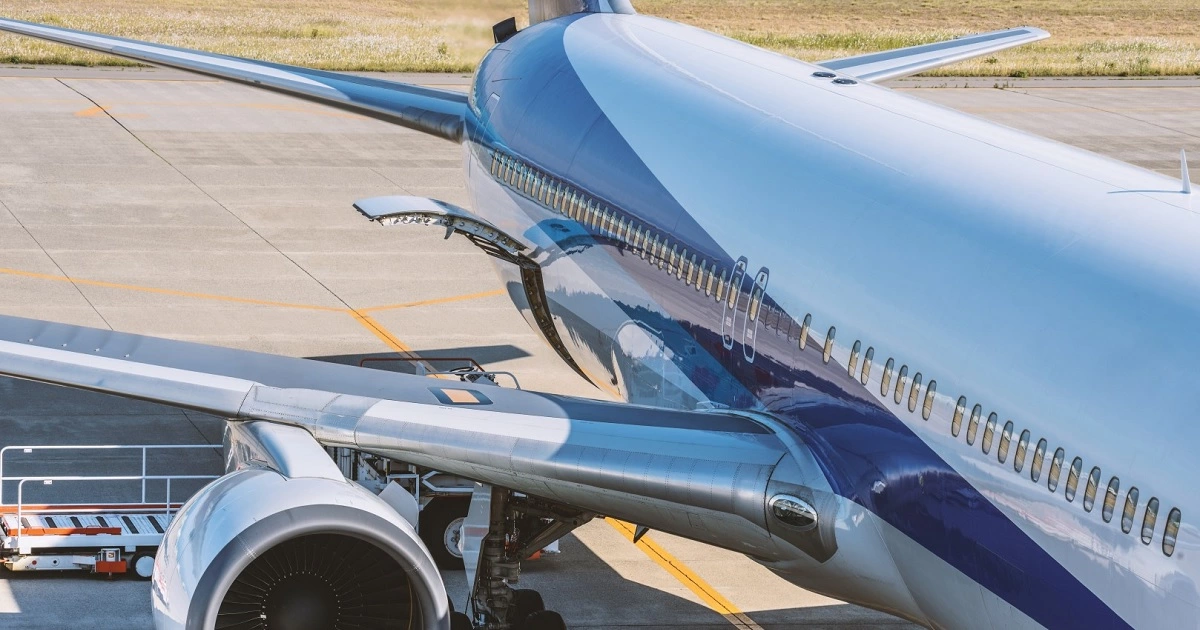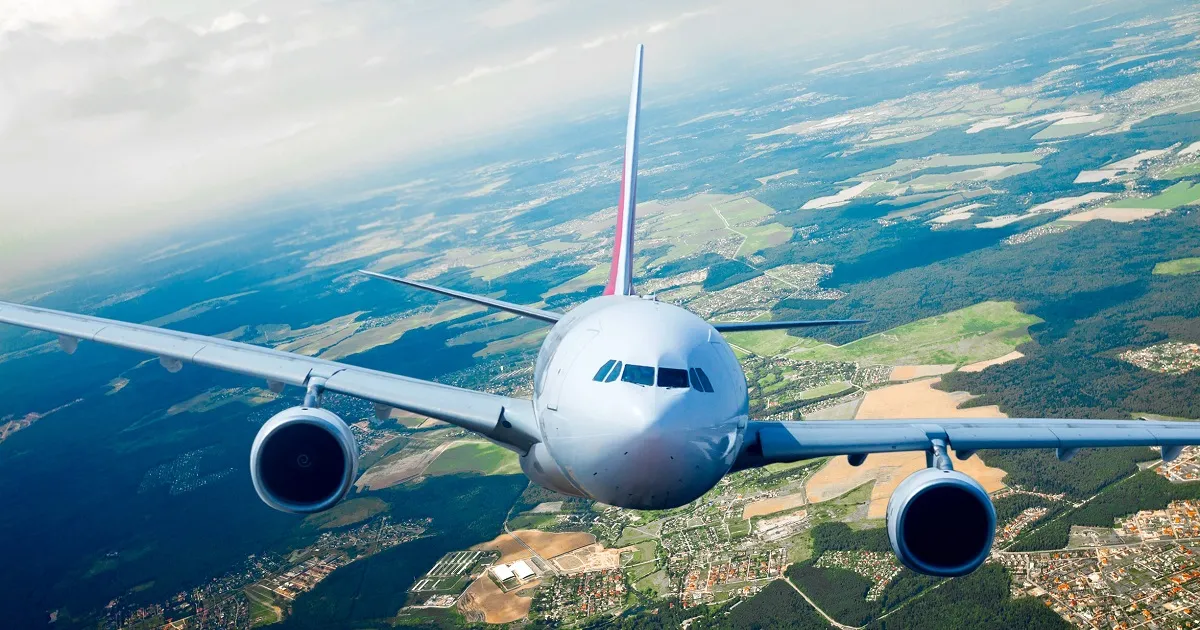
Air Transport
Article | July 26, 2022
As 2021 is a few months away from its end and is the beginning of a new year, it is hopeful that it will bring more positiveness for airline businesses. But what the industry has ahead? How will the new landscape of technology strategies in airline businesses look?
Or say, what will be the platforms for novel technology strategies in the aviation industry in the future?
Let’s have a quick read in the next!
What Airline Technology Strategies Will Look Like?
As you know, the airline industry saw a lot of disruption in 2020. But the circumstance also paved the way for promising and powerful new technologies.
Airline businesses are now turning the tech trends to their advantage. In this way, they can get a handful of opportunities to streamline operations. They could do this because the landscape of technologies is reshaping aviation.
For example, IATA recently calculated that the airline's revenue worldwidewould be more than half of what it was in 2019. That means the industry will witness a massive change due to emerging tech stacks. Its rising importance is influencing market leaders to make more informed decisions today. This is why it is critical to imply technology strategies in your business.
Thus, the focus is on the clients' strategic choices and investments. It will now depend on the implications of technology strategies.
How will some of the applied proactive technologies in business processes look like in the new normal?
This blog groups some of the newer technologies for the new normal in aviation. Explore them and take inspiration from the potential of technologies to revive your business and drive growth.
5 Tech Strategies to Reshape Airline Industry
Machine Learning with AI
Before the pandemic, the airline industry displayed an exceptional commitment to the potential of AI. Like, you must have seen the adoption of chatbots to communicate and other ways to improve operations.
Now, the usage of AI is soared, and its application is more profitable than before. The platform analyses a faster deployment of millions of operational data.
Mechanization
Mechanization technology in the airline industry is gaining thrust. Due to the rapid developments and advancements, several airline businesses are implementing it. As tools are becoming smarter, businesses will soon have completely automated operations. Automation will ease all the workloads, reduce manual intervention and errors to a high accuracy rate.
Real-Time Information Technology
Real-time information technology is a significant technological aviation strategy. It has the potential of improving airlines’ operation efficiency with the help of customized software usage.
Your business can drive growth by implementing custom software applications. But, as you know, to deliver customized and personalized solutions, it is essential to understand clients’ expectations and preferences. So, how is this technology going to take you through it? Let’s understand in the following ways:
Personalized solution: Custom software applications are developed with the help of the updated information collected by knowing customer’s preferences. In this way, you can create personalized or customized solutions for your clients.
Technical Excellence: Having an expert development team across all application stages is a plus in your business. The cutting-edge tools will benefit from fulfilling clients’ demands
Higher business value realization: It's critical to properly align real-time information technology with your business processes. This will deliver solutions on time with the right approach to your client. This way, your business can generate higher value and build trust in long-term relationships with clients.
Analytics
Analytics is the most urgent technological need for airline businesses in the future. Aacquiringe accurate data, predicting losses, and evaluating clients’ needs will be the next transformational scenario in the airline industry.
Implementing this technology will allow airlines to streamline their operations ahead of time. It will also help to take realistic measures to bring down losses that occurred due to the pandemic.
Analytics are also effective in predicting and preparing for the results of business efforts. Data-backed analytics would provide insights to pinpoint geo-specific interventions to gain higher ROI.
Agility
The implementation of technology strategies has encouraged airline businesses to become agile. At the same time, some leading industry market players have now shifted their business to operate in agility. So, it's expected that this trend will continue beyond 2021.
The aviation industry caters to a vast array of products and services. It works to deliver seamless operations and services. The adaptation of agility requires multiple systems to interact and exchange data. So, with the growing rate of partnerships, agility is the need of the hour.
Today, in several airline businesses, teams work in separate locations. Being agile helps them to win adverse circumstances. It also builds the trust of audiences by keeping transparency in work and responding to queries faster.
With this, the emerging technology is also expected to help track the progress of smaller efforts and proactively handle the metrics for projects coming in. In addition, the technology ensures that you can constantly inspect functions and deliver quality products or services.
Lastly, since the budget is one of the top concerns of airline businesses, the development of agile technology strategies helps to keep a check on expenses. Therefore, by tracking the expenditure, it will be easier to plan future budgets adequately.
Frequently Asked Questions
What are other critical new technologies that will transform aviation?
According to IATA’s report, the aviation industry will witness a drastic transformation. Some important new technologies such as cybersecurity, 3D printing in manufacturing, robotics, and biometrics will enter in the future.
How has technology enhanced the aviation industry?
Technology has enhanced aviation in manufacturing. New techniques have created new aircraft with improved fuel consumption and reduced environmental impact. In terms of operation, automation and AI are the new takeovers in aviation.
Why is technological development important for aviation?
Technological development is important to improve the efficiency of airline operations. The need for better connectivity, enhanced travel experience, reduced fuel costs, budget alignment, control over expenses has urged technology to step in.
{
"@context": "https://schema.org",
"@type": "FAQPage",
"mainEntity": [{
"@type": "Question",
"name": "What are other critical new technologies that will transform aviation?",
"acceptedAnswer": {
"@type": "Answer",
"text": "According to IATA’s report, the aviation industry will witness a drastic transformation. Some important new technologies such as cybersecurity, 3D printing in manufacturing, robotics, and biometrics will enter in the future."
}
},{
"@type": "Question",
"name": "How has technology enhanced the aviation industry?",
"acceptedAnswer": {
"@type": "Answer",
"text": "Technology has enhanced aviation in manufacturing. New techniques have created new aircraft with improved fuel consumption and reduced environmental impact. In terms of operation, automation and AI are the new takeovers in aviation."
}
},{
"@type": "Question",
"name": "Why is technological development important for aviation?",
"acceptedAnswer": {
"@type": "Answer",
"text": "Technological development is important to improve the efficiency of airline operations. The need for better connectivity, enhanced travel experience, reduced fuel costs, budget alignment, control over expenses has urged technology to step in."
}
}]
}
Read More

Air Transport
Article | July 15, 2022
Airplane travel is one of the most convenient means of transportation. Consequently, air travel is growing, and aircraft need to be more efficient. Furthermore, in the aftermath of the pandemic, the aviation industry appears to be committed to ensuring a sustainable airflight future. So, for this, aircraft need to be more efficient in production costs and fuel consumption.
An aircraft design depends on three of the most critical aspects. The first is the factor of reliability. Aviation is the only industry where it is impossible to overlook, rectify, or investigate a failed flight mechanism on the spot. The second factor is the need to minimize the weight and volume of its components to withstand load and fluctuating temperatures. And, the third factor is that it shows extreme concern from an environmental perspective. Temperatures on the ground can reach 60 °C and even -80 °C in the stratosphere, with supersonic aircraft reaching temperatures of over 200 °C.
As a result of these factors, the aircraft lubrication system and its requirements are critical. From an economic perspective, servicing and maintenance are a significant part of airlines' expenses after the purchase. In addition, the replacement of parts can cause airplanes to remain grounded for an extended period. Such circumstances can lead to a loss of time and money simultaneously.
From a safety aspect, failures at every level should be avoided. Failures like the shutdown of engines or breakage of engine parts can lead to aircraft failures or even crashes. So, by knowing all these issues around air travel, you can easily understand the interest in aircraft engine oil.
An Innovative Lubrication System for Aircraft Engine
Aircraft turbines revolve at up to 18,000 rpm (revolutions per minute). Due to this, internal temperatures can rise compared to the ambient temperature outside. So, aviation engines need an efficient oil-based lubricant to less pollute the environment and sustain long-distance air travel.
Recently, researchers in the EU-funded ELUBSYS project developed a novel way to use specified aircraft engine oil to promote efficiency and reliability. For this, SAF (Sustainable Aviation Fuel) is in high demand. Moreover, the project's innovative oil production will also help reduce an airline’s operating and maintenance costs. In this way, Europe’s aircraft manufacturers are way ahead in supporting future aircraft engine development.
“Aircraft engine turbines rotate at a very high speed with the help of the classic rubberized oil-seals used in the aircraft engine. The extremes of temperature and friction involved would destroy them. Yet aircraft engines need to stay lubricated.”
-Vincent Thomas of Techspace Aero in Belgium
Apart from this, the piston engine looks promising for the aviation piston engine industry. However, it seems like a piston engine holds an optimistic future in fuel economy. Now, with the inclusion of piston engines, there is more importance to using piston engine oil in the lubrication system for an aircraft engine.
So, how piston engine will be the game-changer for aircraft?
Piston Engine—A Game-Changer in Fuel Economy
Numerous aviation firms are developing a new type of internal combustion engine. Such engines promise a notable boost in fuel economy while also plummeting greenhouse gas emissions. In addition, start-ups like EcoMotors, Achates Power, and Pinnacle Engines are building variations on piston engines with the help of specific piston engine oil.
The engines serve as combustion chambers where fuel is ignited. That makes engines lighter in weight and faster in their operations with greater power density. In this way, piston engines result in less energy waste and thus operate more efficiently.
“The technology is worthwhile. However, it is a completely different concept compared to conventional engines,”
- Dean Tomazic, Vice President of FEV in Auburn.
There are more success stories from the aviation piston engine industry. These stories predict that, indeed, aviation is going through a significant transformation.
Another significant achievement comes from Pinnacle, based in San Carlos, Calif. It is developing a four-stroke, gasoline opposed-piston engine. The company’s founder, Monty Cleeves, invented a sleeve valve that ensures energy is used for propulsion instead of getting wasted after converting into heat.
Functions of the Lubrication System for Aircraft Engine Oils
What are the significant functions of lubricants in aviation oils and engines?
It is the function that realizes the importance of things. Isn’t it? So, to realize the importance of aircraft engine oils, it’s crucial to show the potential of the aircraft lubrication systems.
1 Friction and Wear Reduction
Lubricants reduce friction and wear in an aviation engine. The aircraft lubrication system deals with cooling, sealing, clearing, and fighting corrosion and rust in the engine.
Airplanes that are used seldom need the thorough protection from rust and corrosion that good aviation oils can provide. Also, frequently flying airplanes need lubricants for smooth engine operations and functions to avoid failures.
2 Acts as a Cooling Agent
But it is critical to use good aviation oils as lubricants. Oil is a heat-transform medium. Thus, a suitable oil should be used so that lubricants can keep the engine cool and smooth.
3 A life Saver of Aircraft Engines
Lubricants help in extending the life span of an aircraft engine. If an aircraft uses good aviation oil, for example, SAF, biofuels, and more, then there are fewer chances of any engine repairs. In this case, piston engines are the best fit for aircraft with high demand. Piston engines use highly lubricant piston engine oils, which increase the longevity of aviation engines.
Let’s look at some key takeaways from the market study of aircraft engine oil.
Aircraft Engine Oil: Key Takeaways from its Market Study
Commercial planes and business jets will likely witness high aircraft lubricant oil sales.
According to IATA, mineral oil demand is expected to rise by 25% by 2030.
Bio-based oils will dominate the aviation industry in response to soaring environmental concerns.
Maintenance, repair, and operations (MRO) activities will emerge as crucial parts of aviation to drive the global aviation lubricant market.
Lastly, what’s understood is that aircraft engine oil is the engine's lifeblood. Thus, the engine must function efficiently to encompass the length between overhauls.
Frequently Asked Questions
What does engine oil do in an aircraft?
Engine oil functions as a coolant. Up to 40% of an aircraft’s cooling comes from engine oil. Oil creates a seal between the piston rings, which reduces wear and friction andprovides better compression with increased fuel efficiency.
How is the engine oil lubricated?
Engine oil is lubricated with seals using air, which holds back the oil. Air and oil need to be separated. The air eventually vents out in the form of heat. That is why good oil is necessary for aircraft for lubrication.
What are the essential functions of engine oil?
The essential functions of engine oil are:
Minimizes friction and reduce wear
Cleans the engine
Transfers heat
Prevents corrosion
Forms a seal
Cools the engine parts
Read More

Air Transport
Article | July 6, 2022
DataBridge recently released a new market research analysis on AI in aviation, and the findings are promising. The aviation industry has relied on artificial intelligence (AI) for years. The technology has assisted pilots through machine learning algorithms to collect flight data about altitudes, air traffic management, weather, and route distance. It has enabled them to optimize fuel usage and reduce fuel costs. And now, it is going further.
AI has been cascading into other areas of aviation. Here are some trends to note from the “Global Artificial Intelligence in Aviation Market” study.
Benefitting Ground Operations
AI is extensively used in real-time support systems and air traffic control. From automated baggage check-in to facial recognition, it is powering several ground operations. These functions contribute heavily to maximizing resources, reducing labor costs, and enhancing seamlessness across different processes.
Improving Performance and Processes with Machine Learning (ML)
The emergence of AI in aviation is thanks to a surge of capital investments by key aviation players. Cloud computing is being used by many organizations as a way to consolidate processes and deal with complexity better.
Impacting How Planes will be Piloted
AI will considerably impact the future of piloting as we know it. Building on Airbus’ first ever takeoff, landing and taxi using vision-based AI in 2020, prominent aerospace tech firms continue to work on self-piloting planes or passenger autonomous aerial vehicles (AV) that will employ AI-powered intelligent navigation to fly.
Improving Efficiency and Accuracy for Manual Processes
According to aviation experts, ML digital assistants are able to process massive volumes of historical data in order to support ground staff and pilots alike. With AI’s capabilities of enabling elusive insights into patterns and complexities of data, the technology is considered ideal for aviation, where there is no room for errors.
The Path Ahead
The COVID-19 pandemic highlighted the importance of new technologies in pushing the envelope and innovating solutions. The evolution of technology will only propel the adoption of AI further into the aviation industry. With multiple use cases and brilliant results from the use of AI, the aviation industry is all set for a digital transformation fuelled by data, machine learning and precision
Read More

Air Transport
Article | July 15, 2022
NASA is known for developing and launching spacecraft that have a significant environmental impact. However, the space agency is fully on board with the net-zero movement. NASA supports the White House's Aviation Climate Action Plan. It is helping fund several aviation projects that aim to reduce the aviation industry’s damage to the environment.
NASA’s Sustainable Flight Demonstrator Program
NASA focuses on technologies for single-aisle aircraft, which are the powerhouses of many airline fleets and account for nearly half of global aviation emissions. NASA's Sustainable Flight Demonstrator (SFD) project aims to reduce carbon emissions and keep the US competitive in the design of single-aisle commercial airliners, which are in high demand.
"Since its creation, NASA has worked with industry to develop and implement innovative aeronautics technology and has shared it with the world," said NASA Administrator Bill Nelson. "Now, with this ambitious new project, we're again joining with US industry to usher in a new era of cutting-edge improvements that will make the global aviation industry cleaner, quieter, and more sustainable."
NASA Wants to Reduce the Environmental Impact of Commercial Aircraft
The program’s goal is to build, test, and fly a large-scale demonstrator. NASA hopes to find a business partner for a Funded Space Act Agreement with its Armstrong Flight Research Center in Edwards, California, by the beginning of 2023.
The agreement would draw on private-industry knowledge and experience, with an awardee developing a suggested technical plan and committing considerable cash to the project. Under this agreement, NASA would not purchase an aircraft or any other hardware for its missions. The mission of NASA is to develop new and innovative technologies and capabilities.
NASA will collect data on the ground and in the air. Agency and industry teams can use it to test the airframe configuration and related technologies.
Moving Away From Space
NASA's technologies are typically cutting-edge. However, as with many high-end items, the benefits and applications frequently filter down to the masses. NASA's specialized technology and research frequently has civil aviation applications. It's interesting to see how NASA seems to be moving away from space and going after planes that fly closer to Earth.
Read More